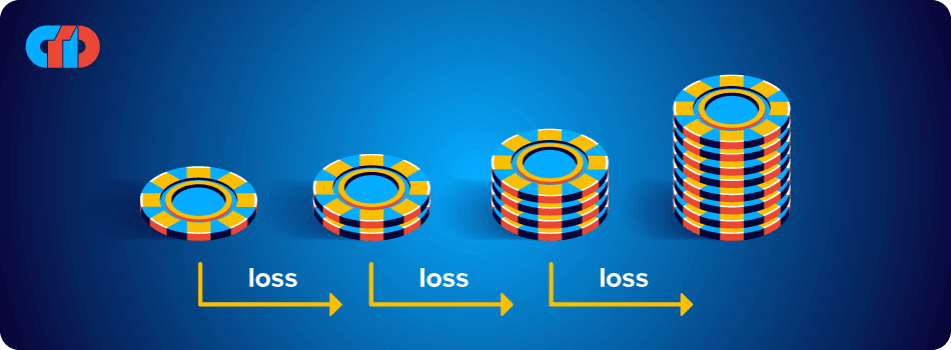
The world of betting and gambling is rife with strategies, and among them, the Martingale system stands out for its simplicity and mathematical appeal. Originally devised in the 18th century, the Martingale system has found application in various games of chance, offering a methodical approach to managing bets. In this article, we explore the fundamentals of the Martingale system, its principles, and how it can be applied as a betting and gambling strategy.
1. Understanding the Martingale System:
a. Doubling Down: At its core, the Martingale system is a betting strategy that involves doubling the stake after each losing bet. The fundamental premise is that, eventually, a winning bet will occur, covering previous losses and providing a profit equal to the initial wager.
b. Applicability: While initially designed for games with a binary outcome (like coin flips), the Martingale system has been adapted for various casino games, sports betting, and even financial markets.
2. Choosing the Right Game:
a. Binary Outcomes: The Martingale system is most effective in games with a binary outcome, where the chances of winning or losing are approximately 50%. Examples include betting on red or black in roulette or the outcome of a coin flip.
b. Fixed Odds: Ensure that the game or bet has fixed odds. This is crucial for the Martingale system to work, as it relies on a consistent payout structure.
3. Starting with a Base Bet:
a. Determining the Initial Wager: Begin with a modest base bet that aligns with your bankroll. This should be an amount you are comfortable with and one that allows for several rounds of doubling.
b. Consistency is Key: The success of the Martingale system relies on consistency in the doubling process. Stick to the predetermined doubling pattern to maintain the integrity of the strategy.
4. Managing Bankroll:
a. Setting Limits: Establish upper and lower limits for your bankroll. The Martingale system can lead to substantial losses if a winning bet does not occur within a reasonable timeframe. Having limits prevents the strategy from spiraling out of control.
b. Calculating Potential Losses: Before employing the Martingale system, calculate the potential losses that may occur during an extended losing streak. This ensures that your bankroll can withstand the doubling process until a win is achieved.
5. Recognizing the Risks:
a. Infinite Doubling Dilemma: The primary criticism of the Martingale system is its susceptibility to prolonged losing streaks. In theory, the strategy requires infinite resources, and in practice, it can lead to significant financial losses if not managed carefully.
b. House Limits: Many casinos and betting platforms impose betting limits, which can thwart the Martingale system. Ensure that the game you choose accommodates the strategy without violating house rules.
6. Adaptation to Different Games:
a. Modified Martingale: Recognize that variations of the Martingale system exist to accommodate different games. For example, the Labouchere system involves adjusting the betting sequence to achieve desired profit targets.
b. Hybrid Strategies: Skilled players often combine the Martingale system with other strategies to mitigate risks. This may involve setting aside a portion of winnings or incorporating additional betting patterns.
7. Emotional Discipline:
a. Staying Calm during Losses: The Martingale system can be emotionally challenging, especially during extended losing streaks. It requires discipline to stick to the strategy without succumbing to the temptation to deviate or abandon it entirely.
b. Avoiding Emotional Decisions: Emotional decision-making can lead to impulsive bets or rash changes to the betting pattern. Successful application of the Martingale system requires a calm and calculated approach.
Conclusion:
The Martingale system, with its straightforward principles of doubling bets after losses, has fascinated gamblers and bettors for centuries. While it can yield short-term profits and align with the probabilities of certain games, its inherent risks and limitations must be understood. Applying the Martingale system necessitates a disciplined approach, strategic bankroll management, and recognition of its suitability for specific games. Whether in the casino or the sportsbook, the Martingale system remains a powerful tool when wielded with caution and a thorough understanding of its dynamics.